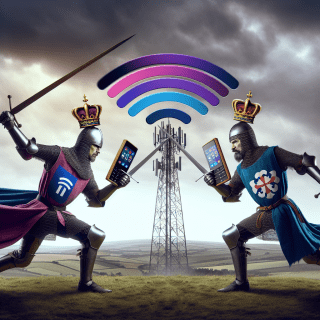T-Mobile vs. Spectrum: Comparing 5G Home Internet Services
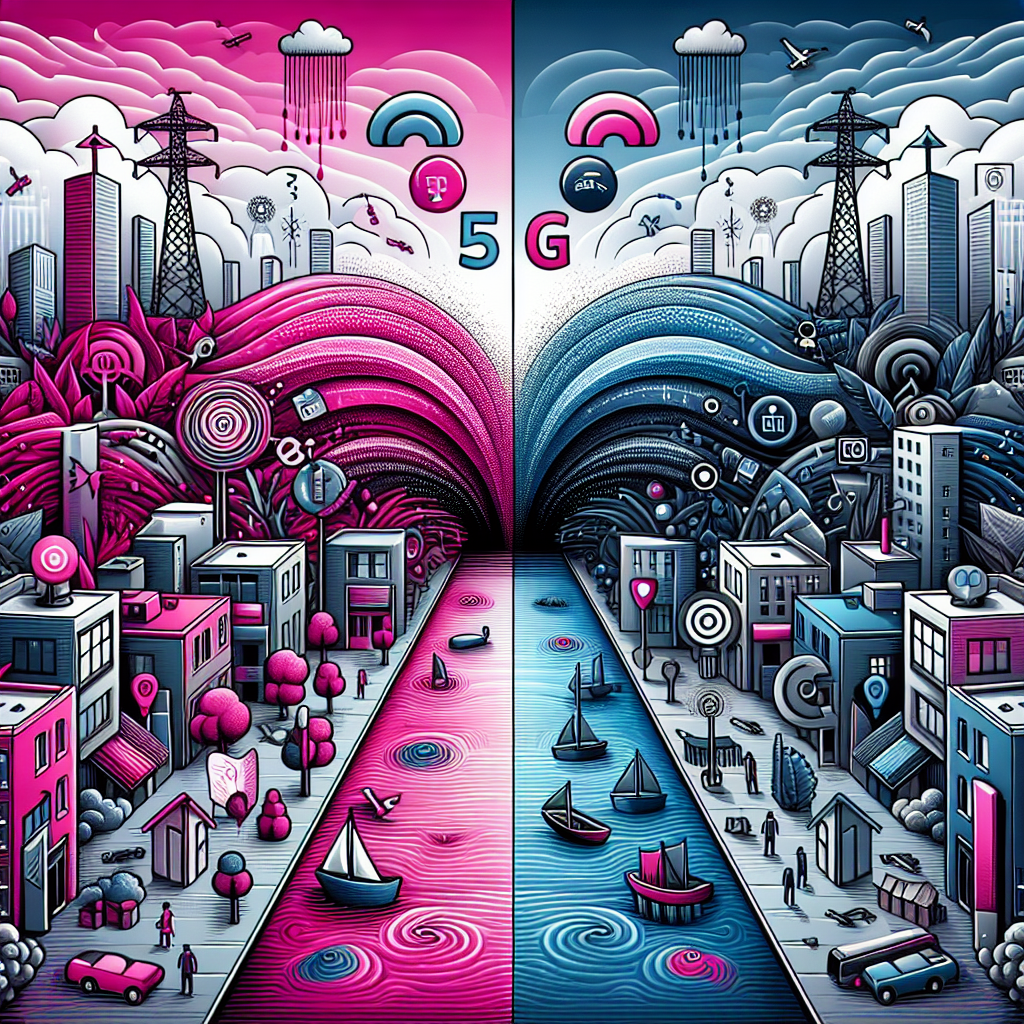
Overview of T-Mobile 5G Home Internet
Service Availability
Speed and Performance
T-Mobile and Spectrum 5G home internet performance when compared With T-Mobile 5G using the mid-band 2.5 GHz spectrum that T-Mobile has so much of, you are looking at average speeds between 100 to 300 Mbps (in tests at good conditions), but there can be even higher peak speeds in optimal conditions. The new Wi-Fi 6 standard is particularly great for users who need all the bandwidth that they can get – like those who have loads of streaming and gaming and smart home devices needs to be managed.
Spectrum, which is mainly a cable broadband provider has thrown its hat into the 5G race by offering converged services that are basically a slapping of 5G nodes onto its existing cable infrastructure. As such, it generally means you can expect faster speeds and relatively consistent performance, thanks to a hardwired backbone that commonly provides well over 200 Mbps.
That said, T-Mobile’s fully wireless design could be a bit more flexible and easier to deploy in rural or underserved areas with limited cable plant. In the end, the decision between them may come down to more niche criteria around speed, stability, and potential regional availability.
Pricing and Plans
A few key differences become apparent when comparing the pricing and plans of T-Mobile and Spectrum’s 5G home internet services. Usually T-Mobile’s 5G Home Internet is a pretty straightforward affair, coming in around $50 a month flat, sans data caps, contracts, or added equipment rental fees. Often times, they have promotions like discounts for existing T-Mobile wireless customers or introductory pricing for new users. In contrast, Spectrum’s pricing can get a little complicated. Their 5G home internet plans could begin at a lower promotional price but usually go up once the promotional period has ended. Spectrum may also charge additional fees, including equipment rental fees and data overages if the data cap is exceeded. In addition, plans from Spectrum could come with a contract, which means, charges for canceling before the end of a term. This deviation in what’s disclosed to customers and how pricing is structured can have a significant impact on a customer’s monthly budget and long-term satisfaction with their internet service.
Equipment and Installation
Key differentiators between T-Mobile and Spectrum 5G home internet services include the devices and how they’re set up. Heather Schuster, Senior Vice President, T-Mobile Home Internet: “5G Gateway promises to provide a simple, intuitive experience with all the advantages of T‑Mobile’s 5G network. Being an all-in-one unit this combines a modem and router to speed the process up to the point you should be up and running in a matter of minutes. The device will self-install itself in most homes with just a simple plug in and on-screen-to-install dish instructions which bypasses the need for professional installation so you save time and money on that as well.
By comparison, Spectrum’s 5G fixed home internet product could be more conventional with separate modems and routers. Although Spectrum offers self-installation kits, the process can be somewhat difficult and sometimes requires a technician visit to get you set up and the best signal strength. This will also mean longer wait times and more costs.
As a whole, T-Mobile’s device/install experience is geared more towards ease of use and simplicity, whereas Spectrum’s full package, while more inclusive, could require a more intricate and costlier installation process.
Overview of Spectrum 5G Home Internet
Key differentiators between T-Mobile and Spectrum 5G home internet services include the devices and how they’re set up. Heather Schuster, Senior Vice President, T-Mobile Home Internet: “5G Gateway promises to provide a simple, intuitive experience with all the advantages of T‑Mobile’s 5G network. Being an all-in-one unit this combines a modem and router to speed the process up to the point you should be up and running in a matter of minutes. The device will self-install itself in most homes with just a simple plug in and on-screen-to-install dish instructions which bypasses the need for professional installation so you save time and money on that as well.
By comparison, Spectrum’s 5G fixed home internet product could be more conventional with separate modems and routers. Although Spectrum offers self-installation kits, the process can be somewhat difficult and sometimes requires a technician visit to get you set up and the best signal strength. This will also mean longer wait times and more costs.
As a whole, T-Mobile’s device/install experience is geared more towards ease of use and simplicity, whereas Spectrum’s full package, while more inclusive, could require a more intricate and costlier installation process.
Service Availability
Key differentiators between T-Mobile and Spectrum 5G home internet services include the devices and how they’re set up. Heather Schuster, Senior Vice President, T-Mobile Home Internet: “5G Gateway promises to provide a simple, intuitive experience with all the advantages of T‑Mobile’s 5G network. Being an all-in-one unit this combines a modem and router to speed the process up to the point you should be up and running in a matter of minutes. The device will self-install itself in most homes with just a simple plug in and on-screen-to-install dish instructions which bypasses the need for professional installation so you save time and money on that as well.
By comparison, Spectrum’s 5G fixed home internet product could be more conventional with separate modems and routers. Although Spectrum offers self-installation kits, the process can be somewhat difficult and sometimes requires a technician visit to get you set up and the best signal strength. This will also mean longer wait times and more costs.
As a whole, T-Mobile’s device/install experience is geared more towards ease of use and simplicity, whereas Spectrum’s full package, while more inclusive, could require a more intricate and costlier installation process.
Speed and Performance
Key differentiators between T-Mobile and Spectrum 5G home internet services include the devices and how they’re set up. Heather Schuster, Senior Vice President, T-Mobile Home Internet: “5G Gateway promises to provide a simple, intuitive experience with all the advantages of T‑Mobile’s 5G network. Being an all-in-one unit this combines a modem and router to speed the process up to the point you should be up and running in a matter of minutes. The device will self-install itself in most homes with just a simple plug in and on-screen-to-install dish instructions which bypasses the need for professional installation so you save time and money on that as well.
By comparison, Spectrum’s 5G fixed home internet product could be more conventional with separate modems and routers. Although Spectrum offers self-installation kits, the process can be somewhat difficult and sometimes requires a technician visit to get you set up and the best signal strength. This will also mean longer wait times and more costs.
As a whole, T-Mobile’s device/install experience is geared more towards ease of use and simplicity, whereas Spectrum’s full package, while more inclusive, could require a more intricate and costlier installation process.
Pricing and Plans
Key differentiators between T-Mobile and Spectrum 5G home internet services include the devices and how they’re set up. Heather Schuster, Senior Vice President, T-Mobile Home Internet: “5G Gateway promises to provide a simple, intuitive experience with all the advantages of T‑Mobile’s 5G network. Being an all-in-one unit this combines a modem and router to speed the process up to the point you should be up and running in a matter of minutes. The device will self-install itself in most homes with just a simple plug in and on-screen-to-install dish instructions which bypasses the need for professional installation so you save time and money on that as well.
By comparison, Spectrum’s 5G fixed home internet product could be more conventional with separate modems and routers. Although Spectrum offers self-installation kits, the process can be somewhat difficult and sometimes requires a technician visit to get you set up and the best signal strength. This will also mean longer wait times and more costs.
As a whole, T-Mobile’s device/install experience is geared more towards ease of use and simplicity, whereas Spectrum’s full package, while more inclusive, could require a more intricate and costlier installation process.
Equipment and Installation
When it comes to equipment and installation for T-Mobile and Spectrum’s 5G home internet services, each provider has a different story. As for the hardware, T-Mobile aims to make the process as easy as possible by sending a pre-configured, plug-and-play 5G gateway straight to customers’ homes. User-friendly because this device has a modem and a router (2 in 1) suitable for even those without technical skills All the customer needs to do is plug in their gateway, setup is straight-forward and simply instructions are followed, and the connection is ready to use within minutes.
Spectrum’s 5G home internet may necessitate a more normal installation too. That frequently would mean a tech visit to ensure optimal placement and system configuration, notably with current coaxial or fiber connections. That separation may mean that customers will get a separate modem and router, as opposed to T-Mobile’s all-in-one connection, potentially making for a more complicated installation.
To sum it up, T-Mobile is simplistic lean towards the DIY, and Spectrum a bit old-school leaning towards others who may want some hand-holding by a tech.
Side-by-Side Comparison
Let’s take a look at how T-Mobile and Spectrum’s 5G home internet services compare to each other when stacked together. T-Mobile’s 5G home internet uses the carrier’s built-out cellular network to provide wireless broadband, typically offering download speeds between 33 and 182 Mbps. The service is lauded for its simple setup, which involves very little equipment and no expert installation. On the other hand, the hybrid model from Spectrum pairs traditional cable with bleeding-edge 5G tech, and generally uses a mix of both for speeds between 200 Mbps and 940 Mbps, depending on the package. However, installation with Spectrum is often much more involved and may require a tech visit.
T-Mobile is usually the cheaper of the two, with a no-nonsense monthly cost that includes all fees and taxes in some markets, as opposed to Spectrum’s less predictable flat rate that can cost extra for equipment rentals and other charges. Though both services are contract-free, Spectrum could be subject to a data cap, as opposed to T-Mobile, which would come with unlimited data. It is up to you as they are both good, and this is one that really comes down to the need to have fast speed, easier installation or cost?
Speed Test Results
T-Mobile 5G Home Internet vs Spectrum — Speed Test Results Compared As with peak speed, T-Mobile home 5G speeds will depend a lot on your distance to the 5G tower and congestion on the network. Speeds can range from 35 to 115 Mbps, somewhat faster under the best circumstances. That variance could mean that users living in crowded areas like NYC might get a different performance than someone well inside the coverage area of a 5G signal.
Spectrum on the other hand, cable connections, which are typically wired, rather than wireless, can offer more consistent speeds, often claimed and delivered between 100 Mbps to 940 Mbps depending on the plan selected. These numbers are not as dependent on environmental conditions in the way that 5G isforestalled.
Speed tests created by users often reveal that Spectrum 5G appeared to hold a more consistent and stable speed than T-Mobile 5G, which offers faster speeds but with inconsistency. This key difference is more important for those who want to ensure they get an undisturbed fast internet connection for things like gaming and 4K stream.
Data Caps and Limits
T-Mobile 5G Home Internet vs Spectrum — Speed Test Results Compared As with peak speed, T-Mobile home 5G speeds will depend a lot on your distance to the 5G tower and congestion on the network. Speeds can range from 35 to 115 Mbps, somewhat faster under the best circumstances. That variance could mean that users living in crowded areas like NYC might get a different performance than someone well inside the coverage area of a 5G signal.
Spectrum on the other hand, cable connections, which are typically wired, rather than wireless, can offer more consistent speeds, often claimed and delivered between 100 Mbps to 940 Mbps depending on the plan selected. These numbers are not as dependent on environmental conditions in the way that 5G isforestalled.
Speed tests created by users often reveal that Spectrum 5G appeared to hold a more consistent and stable speed than T-Mobile 5G, which offers faster speeds but with inconsistency. This key difference is more important for those who want to ensure they get an undisturbed fast internet connection for things like gaming and 4K stream.
Customer Support and Service Quality
The following are some of the key differences between customer service and quality of service by T-Mobile and Spectrum for their 5G home internet service offering. T-Mobile, which likes to bill itself as the Un-carrier, prides itself on customer experience, including 24/7 phone support, online chat support, and social platform and product forums. They also have solid reputation of great customer care support and they make being accessible to their customers a priority: including initiatives like Team-of-Experts, which means the actual person on the other end of the line really is right there, as opposed to a machine-crazed labyrinth.
Spectrum, however, provides phone, on line chat, and physical shop locations for purchaser help. While Spectrum offers practical self-help resources, including online troubleshooting one-way links and network message boards, opinions of its customer service vary. Other customers report longer wait times and more generic service versus T-Mobile.
T-Mobile has overall tended to have a more tailored, customer service-oriented mentality with lower reach than Spectrum but somewhat more fallible customer-to-customer support; however, Spectrum has been the opposite — mind the one loose screw here or there, but provides almost anywhere coverage and copious self-service resources.
Additional Features and Perks
The following are some of the key differences between customer service and quality of service by T-Mobile and Spectrum for their 5G home internet service offering. T-Mobile, which likes to bill itself as the Un-carrier, prides itself on customer experience, including 24/7 phone support, online chat support, and social platform and product forums. They also have solid reputation of great customer care support and they make being accessible to their customers a priority: including initiatives like Team-of-Experts, which means the actual person on the other end of the line really is right there, as opposed to a machine-crazed labyrinth.
Spectrum, however, provides phone, on line chat, and physical shop locations for purchaser help. While Spectrum offers practical self-help resources, including online troubleshooting one-way links and network message boards, opinions of its customer service vary. Other customers report longer wait times and more generic service versus T-Mobile.
T-Mobile has overall tended to have a more tailored, customer service-oriented mentality with lower reach than Spectrum but somewhat more fallible customer-to-customer support; however, Spectrum has been the opposite — mind the one loose screw here or there, but provides almost anywhere coverage and copious self-service resources.
Customer Experiences and Reviews
The following are some of the key differences between customer service and quality of service by T-Mobile and Spectrum for their 5G home internet service offering. T-Mobile, which likes to bill itself as the Un-carrier, prides itself on customer experience, including 24/7 phone support, online chat support, and social platform and product forums. They also have solid reputation of great customer care support and they make being accessible to their customers a priority: including initiatives like Team-of-Experts, which means the actual person on the other end of the line really is right there, as opposed to a machine-crazed labyrinth.
Spectrum, however, provides phone, on line chat, and physical shop locations for purchaser help. While Spectrum offers practical self-help resources, including online troubleshooting one-way links and network message boards, opinions of its customer service vary. Other customers report longer wait times and more generic service versus T-Mobile.
T-Mobile has overall tended to have a more tailored, customer service-oriented mentality with lower reach than Spectrum but somewhat more fallible customer-to-customer support; however, Spectrum has been the opposite — mind the one loose screw here or there, but provides almost anywhere coverage and copious self-service resources.
User Satisfaction
T-Mobile 5G Home Internet vs Spectrum: Which is best for you? User Reviews T-Mobile : For T-Mobile, user satisfaction is likely shaped by the newness and speed of its 5G tech. Users love the high-speed connection, stability of the network, as well as the wide coverage and affordability without long-term contracts. Setting itself apart from the competition, T-Mobile offers an intuitive setup process and enticing promotional deals. That said, some users feel that there is not enough consistency in rural or more isolated areas and that hurts the experience just a little.
While Spectrum generally receives good marks for user satisfaction, those ratings are more or less anchored in its existing infrastructure, which is better at delivering speed and coverage. A lot of users appreciate the fact that there is no data cap and also that they can bundle services which include internet, TV and phone plans. However, Spectrum does not land very well in terms of customer satisfaction with regularly reported poor customer service, higher costs post-promotion period, and long-term contracts, this could turn out Spectrum as a slightly less likable choice for some users when compared to innovative and flexible offerings of T-Mobile.
Common Issues Reported
Pulse Pounding Problems: At the end of the day, reliability remains the key to both T-Mobile and Spectrum 5G Home Internet services, and this is best represented by user-reported issues. One T-Mobile user wrote that speeds aren’t always consistent and that the signal often drops off and said right now, it’s just dependent on where the 5G is available. A few customers have had trouble with set up and install and they also report that the modem heats up from time to time. This being said, a lot of people enjoy the fact that T-Mobile provides plans without data caps with a fair price.
Also, Spectrum’s 5G home internet service faces its own struggles. Users frequently complained about problems concerning congestion on a network that saw speeds drop during the busiest times of the day. There are also problems with customer service (from complaints such as: difficulties in getting technical issues rectified, or when some customers want to dispute some bills). It is also not without its outages, something that might be troublesome for people who are working on their devices, or browsers, day in, day out.
The problems identified by the debunked reports still need improvement as both services strive to provide The Fastest, Most Reliable 5G Home Broadband, and live up to that reputation.
Positive Feedback Highlights
Pulse Pounding Problems: At the end of the day, reliability remains the key to both T-Mobile and Spectrum 5G Home Internet services, and this is best represented by user-reported issues. One T-Mobile user wrote that speeds aren’t always consistent and that the signal often drops off and said right now, it’s just dependent on where the 5G is available. A few customers have had trouble with set up and install and they also report that the modem heats up from time to time. This being said, a lot of people enjoy the fact that T-Mobile provides plans without data caps with a fair price.
Also, Spectrum’s 5G home internet service faces its own struggles. Users frequently complained about problems concerning congestion on a network that saw speeds drop during the busiest times of the day. There are also problems with customer service (from complaints such as: difficulties in getting technical issues rectified, or when some customers want to dispute some bills). It is also not without its outages, something that might be troublesome for people who are working on their devices, or browsers, day in, day out.
The problems identified by the debunked reports still need improvement as both services strive to provide The Fastest, Most Reliable 5G Home Broadband, and live up to that reputation.
Expert Opinions
Pulse Pounding Problems: At the end of the day, reliability remains the key to both T-Mobile and Spectrum 5G Home Internet services, and this is best represented by user-reported issues. One T-Mobile user wrote that speeds aren’t always consistent and that the signal often drops off and said right now, it’s just dependent on where the 5G is available. A few customers have had trouble with set up and install and they also report that the modem heats up from time to time. This being said, a lot of people enjoy the fact that T-Mobile provides plans without data caps with a fair price.
Also, Spectrum’s 5G home internet service faces its own struggles. Users frequently complained about problems concerning congestion on a network that saw speeds drop during the busiest times of the day. There are also problems with customer service (from complaints such as: difficulties in getting technical issues rectified, or when some customers want to dispute some bills). It is also not without its outages, something that might be troublesome for people who are working on their devices, or browsers, day in, day out.
The problems identified by the debunked reports still need improvement as both services strive to provide The Fastest, Most Reliable 5G Home Broadband, and live up to that reputation.
So what have we concluded?
Pulse Pounding Problems: At the end of the day, reliability remains the key to both T-Mobile and Spectrum 5G Home Internet services, and this is best represented by user-reported issues. One T-Mobile user wrote that speeds aren’t always consistent and that the signal often drops off and said right now, it’s just dependent on where the 5G is available. A few customers have had trouble with set up and install and they also report that the modem heats up from time to time. This being said, a lot of people enjoy the fact that T-Mobile provides plans without data caps with a fair price.
Also, Spectrum’s 5G home internet service faces its own struggles. Users frequently complained about problems concerning congestion on a network that saw speeds drop during the busiest times of the day. There are also problems with customer service (from complaints such as: difficulties in getting technical issues rectified, or when some customers want to dispute some bills). It is also not without its outages, something that might be troublesome for people who are working on their devices, or browsers, day in, day out.
The problems identified by the debunked reports still need improvement as both services strive to provide The Fastest, Most Reliable 5G Home Broadband, and live up to that reputation.
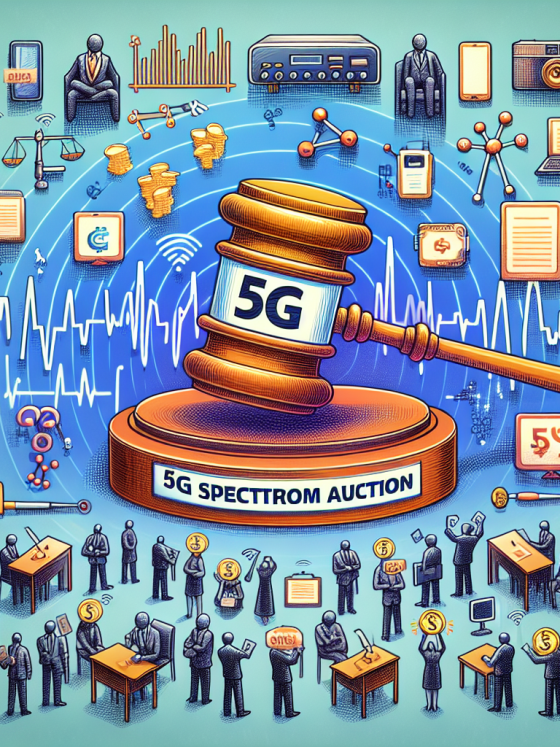
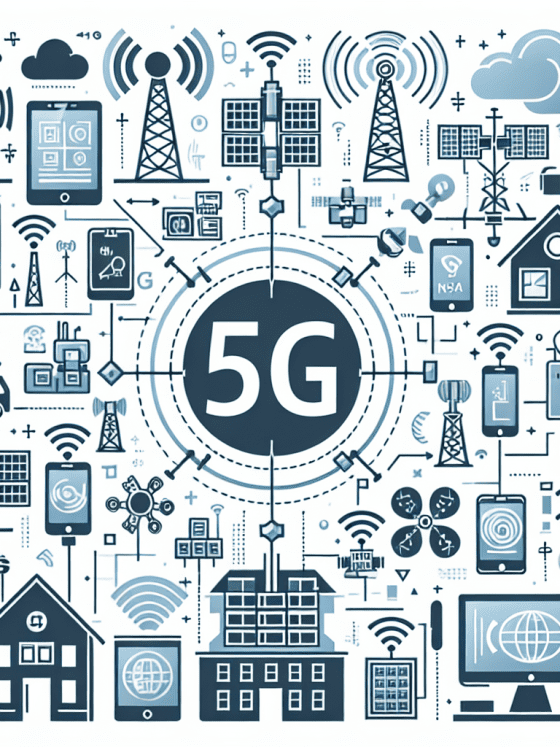
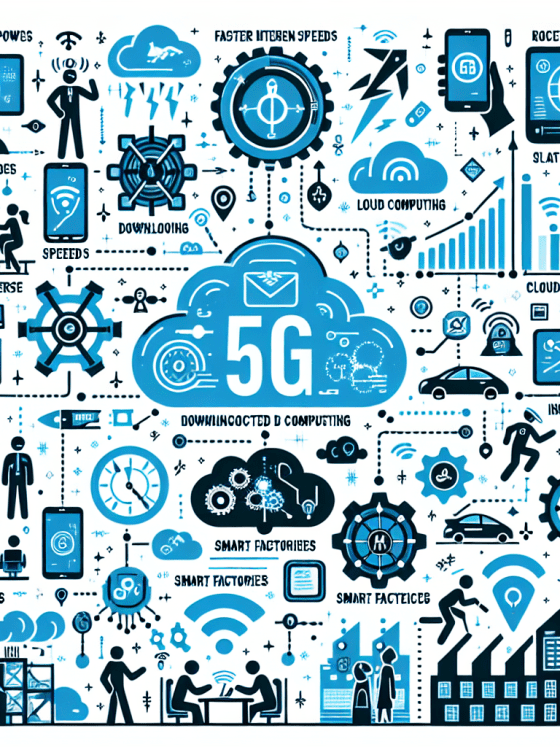
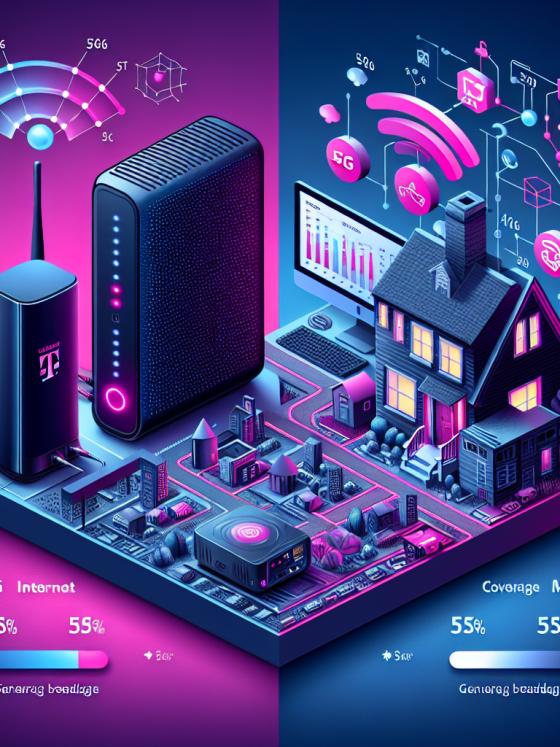
![Introduction to 5G Technology [PPT]](https://5ginnovations.top/wp-content/uploads/2024/07/introduction-to-5g-technology-ppt-560x747.jpg)
![Complete Guide to 5G Technology [PDF]](https://5ginnovations.top/wp-content/uploads/2024/07/complete-guide-to-5g-technology-pdf-560x747.jpg)
